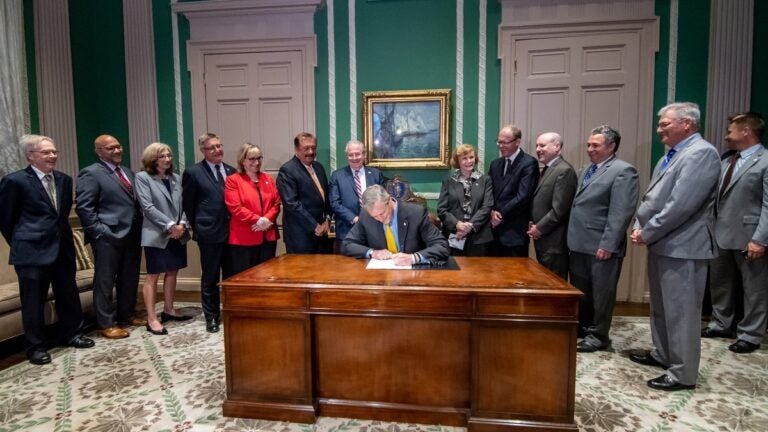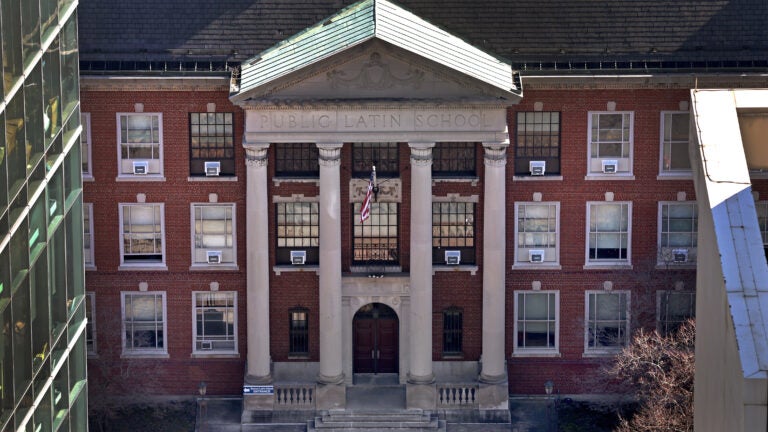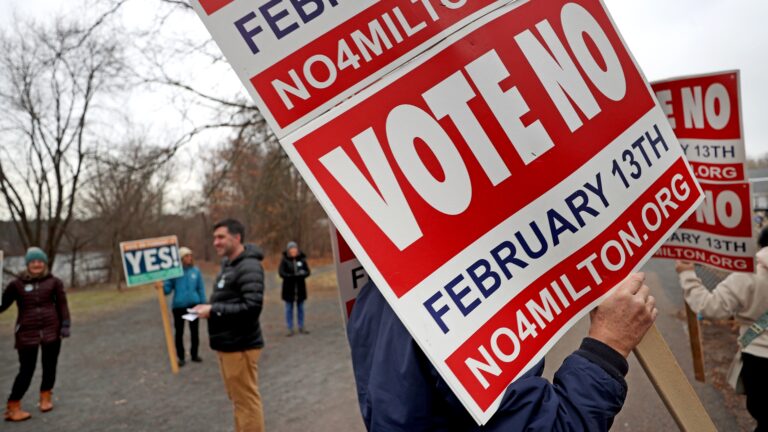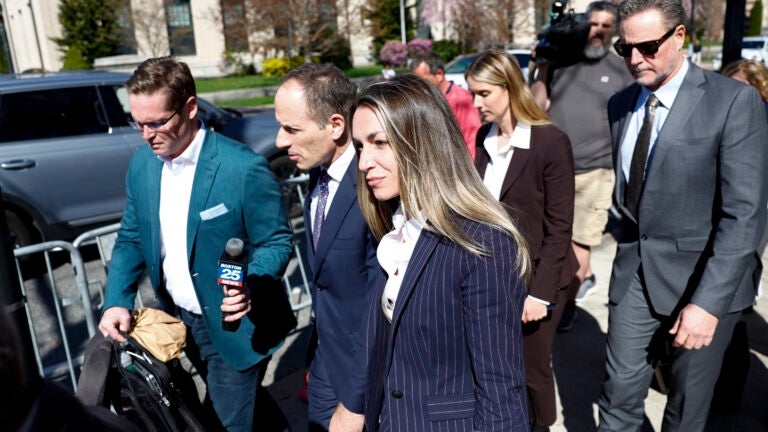What you need to know about the ‘grand bargain’ that Charlie Baker just signed into law
Massachusetts workers will be seeing a lot of changes in the next few years.

Rather than having Massachusetts voters decide on three separate ballot questions this November, state lawmakers decided to move on the issues themselves.
The so-called “grand bargain” bill, which Gov. Charlie Baker signed into law Thursday, will ultimately raise the state’s minimum wage to $15 an hour, implement a guaranteed paid family and medical leave program, and establishes a permanent sales tax holiday. It also includes a new payroll tax.
The legislation was passed quickly following the court defeat of the millionaire tax ballot question last week. It also perhaps preempts the inevitable, as polls showed high support for the minimum wage, paid leave, and sales tax ballot questions that would have gone before Bay State voters this November.
In exchange for Baker’s signature, the worker and business groups have agreed to drop those three ballot questions. Both sides say the new law is “imperfect,” but were willing to take a few concessions to deliver on their larger goals.
The Massachusetts workforce continues to grow with more and more people finding jobs and our administration is committed to maintaining the Commonwealth’s competitive economic environment. 2/2
— Charlie Baker (@MAGovArchive) June 28, 2018
Baker said Thursday that the legislation produces “a better set of policies than what the ballot questions represented.” Here’s what those policies include:
Minimum wage
The law incrementally raises the current $11-an-hour minimum wage to $15 an hour by 2023. The increase means that, by that time, Massachusetts will be tied with New York and California (and Washington, D.C.) for having the highest statewide minimum wage in the country.
The increases begin in 2019, when the state minimum wage will go up to $12 an hour, and continue in 75-cent increments each year from then on: $12.75 in 2020, $13.50 in 2021, $14.25 in 2022, and $15 in 2023.
That timeline is a year longer than the one proposed in the minimum wage ballot question, which would have raised the minimum wage to $15 an hour by 2022. However, the group backing the question conceded the one-year wait to avoid an election-season battle with the business community. Claiming a win on the issue, Raise Up Massachusetts agreed Tuesday to drop the ballot measure if the compromise bill became law.
Unlike under the proposed ballot question, the new minimum wage hike will also not be indexed to inflation.
Tipped minimum wage
Regular minimum wage workers aren’t the only ones getting a raise.
The law also includes an increase for the tipped minimum wage. Somewhat controversially, employers are allowed to pay an hourly wage that is significantly below the minimum to workers who earn tips, presuming that those tips will make up for it.
The new law raises the current tipped minimum wage in Massachusetts of $3.75 an hour by 60-cent increments each year until it reaches $6.75 in 2023. The raise is slower and less than the amount in the ballot question, which would have raised the tipped minimum wage to $9 an hour by 2022. In a statement this week, Raise Up Massachusetts said they were “troubled by the inadequate increase.”
Sunday pay
Supporters of the minimum wage increases are “profoundly disappointed” by the law’s elimination of time-and-a-half pay for retail workers on Sundays and holidays.
In something of a compromise to employers, the law gets rid of the requirement that retailers pay an overtime wage to Sunday and holiday workers. However, it maintains that employees cannot be required to work on Sundays or holidays, or be punished for refusing to work on those days.
According to The Boston Globe, legislators publicly released the text of the legislation just hours before they voted on the bill, in an attempt to “outrun opposition” from unions, who expressed frustration with the decision to get rid of time-and-a-half pay for Sunday workers.
“The Legislature takes away overtime of hard-working middle-class people, without any debate or very little debate, and then they call it a grand bargain?” Steve Tolman, president of the Massachusetts AFL-CIO, told the Globe.
Paid leave
Workers will however be happy with another major tenet of the new law.
Beginning in 2021, employees — even self-employed workers — will be allowed to take up to 12 weeks of paid family leave and up to 20 weeks of paid medical leave — with the guarantee that they can return to their previous job or an “equivalent position” with the same pay, status, and benefits.
The weekly benefits under the program will be a calculated percentage of the employee’s existing salary and is capped at $850 a week. Employees also cannot take more than 26 combined weeks of paid leave in a single year. The benefits would be paid out from a newly established Family and Employment Security Trust Fund.
Family leave will be available to individuals to bond with a new child in the first 12 months after their birth or adoption. It can also be used to care for a close family member with a “serious health condition” or help a family member in the military who has been called into active duty. Medical leave will be available to individuals with their own serious health condition.
The legislation’s leave program is more modest than the one proposed in the ballot question voters would have seen this fall. Raise Up Massachusetts had proposed up to 16 weeks of paid family leave and 26 weeks of paid medical leave. However, the group still heralded the new law for enacting “the strongest, most progressive” program in the nation.
Payroll tax increase
How is that robust, new paid leave program paid for? Well, the law also includes a payroll tax increase estimated to bring in $750 to $800 million each year.
That number may seem large, but in reality it is just a 0.63 percent increase, with the employer and employee roughly splitting the contribution. It is set to take effect July 1, 2019. According to the Globe, the new deduction would amount to between $4 and $4.50 weekly per employee.
Baker, who campaigned in 2014 on a promise of no new taxes or fees, hasn’t directly addressed the tax increase in the new law.
“The Massachusetts workforce continues to grow with more and more people finding jobs and our administration is committed to maintaining the Commonwealth’s competitive economic environment,” the Republican governor said in a statement Thursday.
Sales tax holiday
Another ballot question that seemed a sure bet to pass this fall was the referendum to lower the state sales tax from 6.25 percent to 5 percent and establish a permanent sales tax holiday weekend in August.
Under the legislation signed into law, the business group backing the sales tax holiday got half of what they wanted. While there will be no change to the statewide sales tax, Massachusetts residents will get a two-day weekend each August in which they do not have to pay it.
The annual sales tax holiday was first established in 2004, but had recently fallen out of favor with legislators, who opted against having it in 2016 and 2017 (as well as 2009, when the state was in the midst of the recession). Baker has been an outspoken supporter of the holiday.
The new law says that lawmakers must decided on the specific weekend in August each year by June 15. There are however some exemptions: Consumers will still have to pay a sales tax that weekend on products including marijuana (assuming retail stores are open), alcohol, cars, and single items over $2,500.
Business community reaction
The Retailers Association of Massachusetts, which was pushing the sales tax cut ballot question, said last week that they agreed to pull the referendum — particularly in light of the recent Supreme Court decision on states’ ability to collect sales taxes on online purchases, which the group says “contains the competitive damage of tax free internet sellers.”
Jon Hurst, the president of the association, explained in a lengthy post last week that the group wasn’t especially happy with the “grand bargain,” given their opposition to the minimum wage and paid leave measures. But Hurst noted that the legislation ultimately “mitigated” both of those initiatives “in timing and costs.”
“The results would be far worse had these measures gone to the ballot, and the Legislature deserves credit for bringing the parties together to bring a balanced resolution,” the association said in their official press statement.
James Rooney, the president of the Great Boston Chamber of Commerce, echoed that sentiment, in a briefer statement last week.
“Although imperfect, this legislation reflects compromise from all sides and we accept it,” Rooney said.







